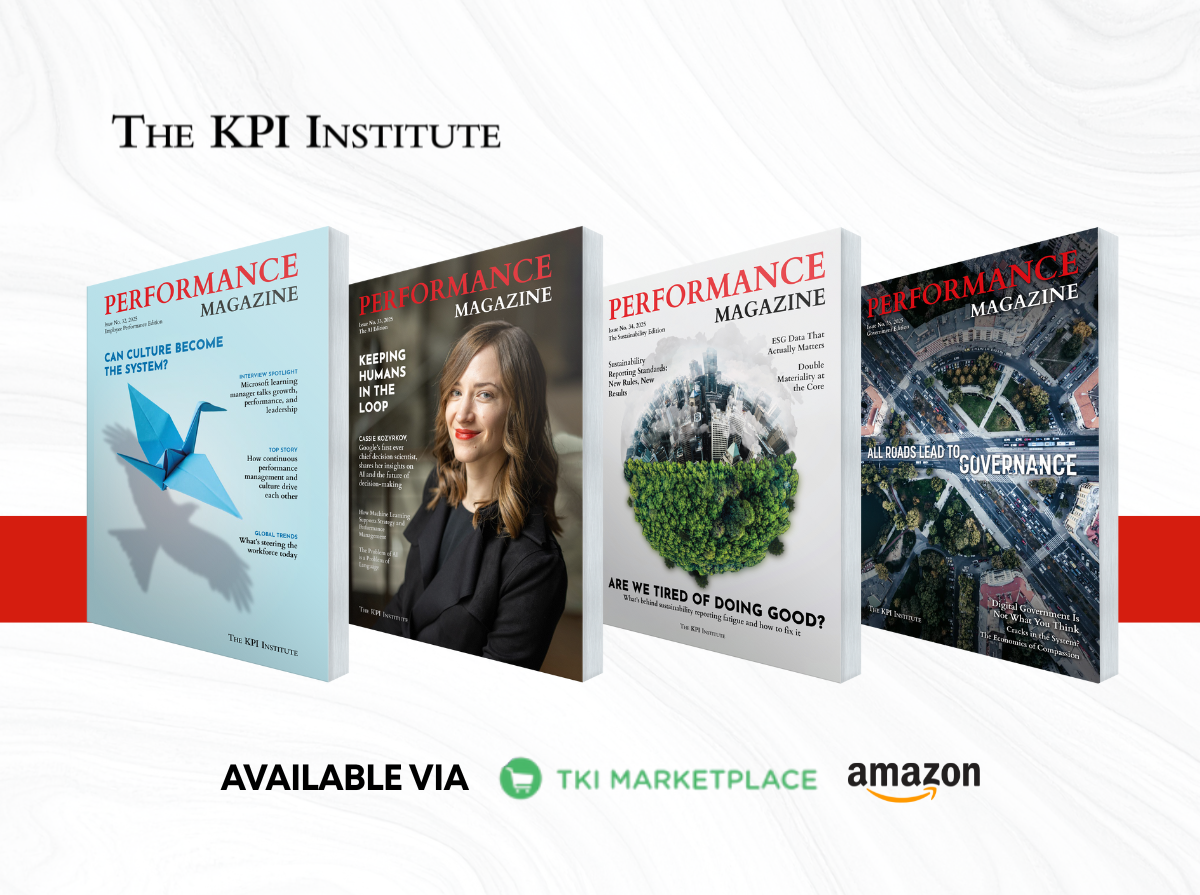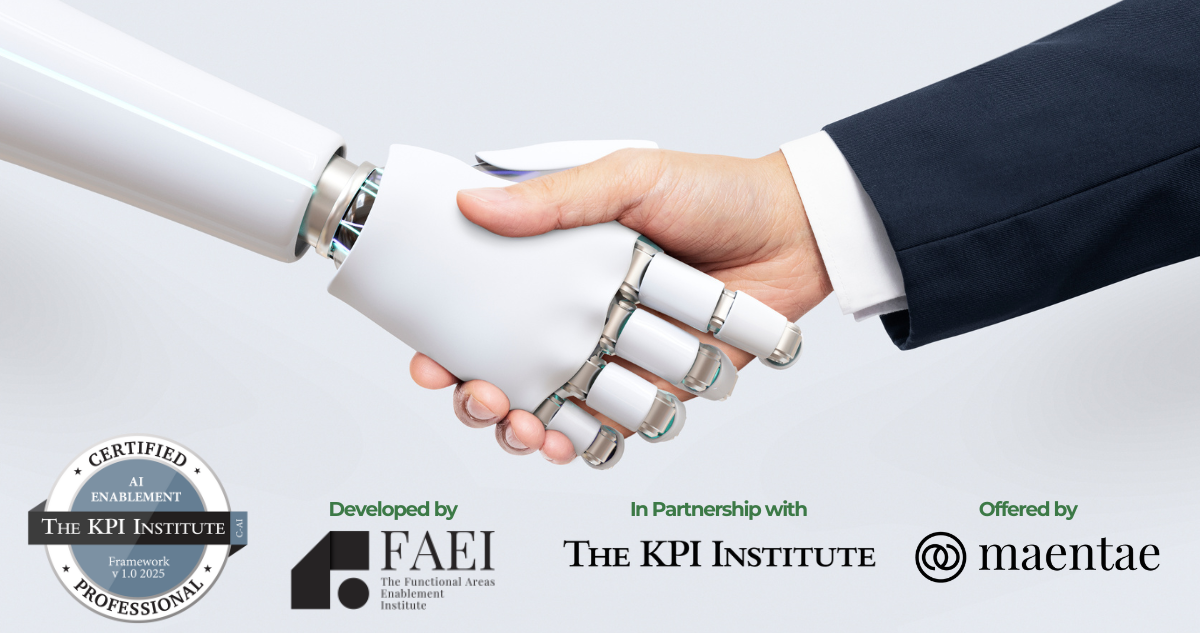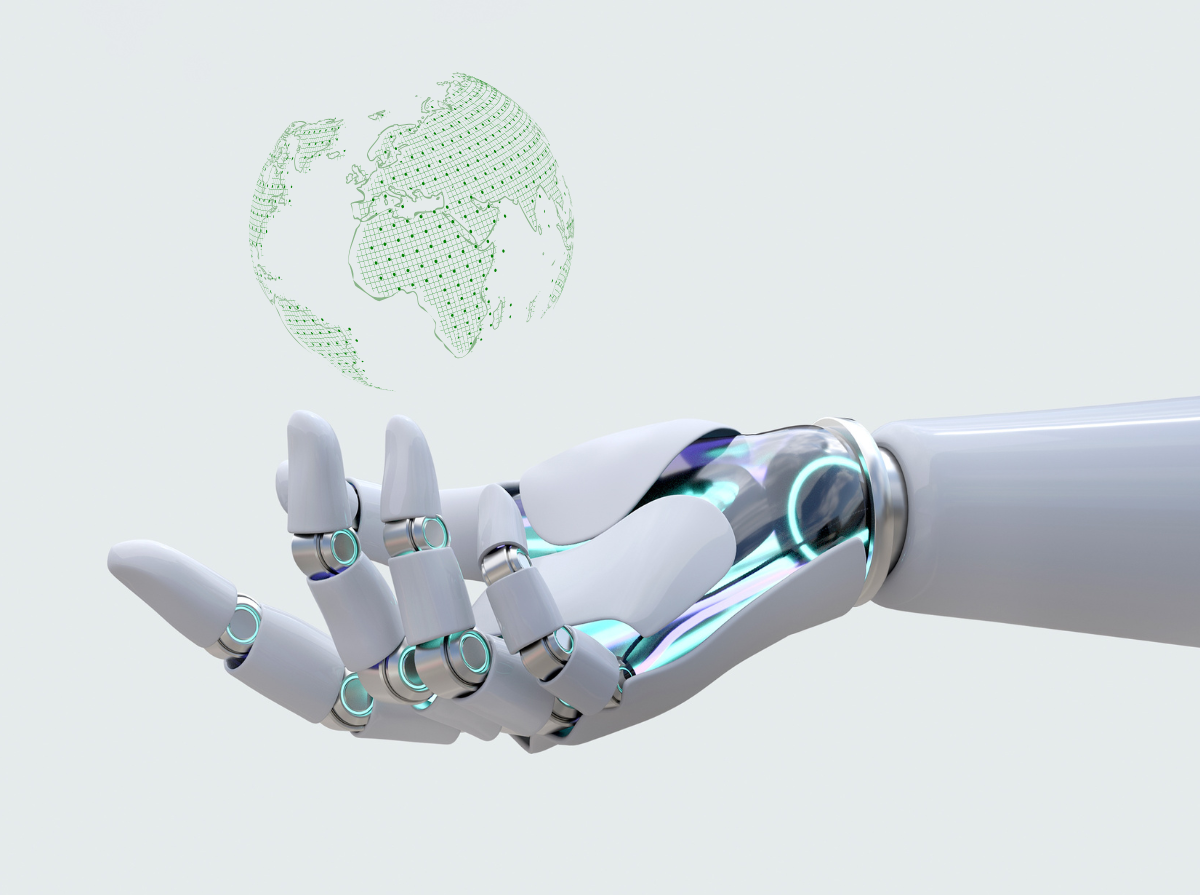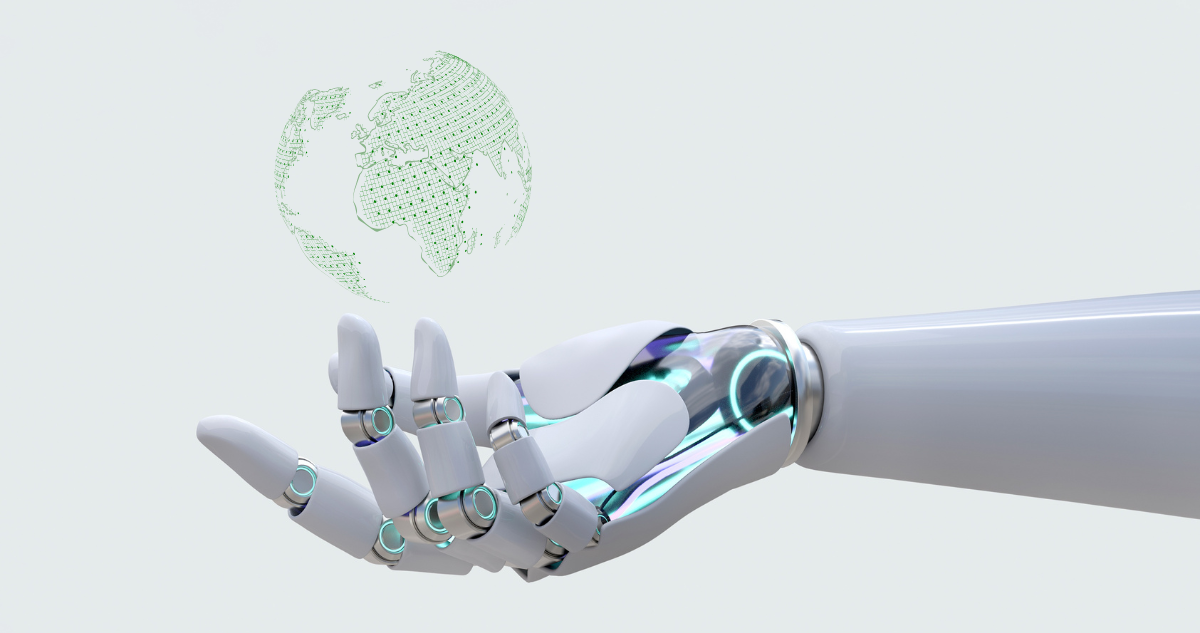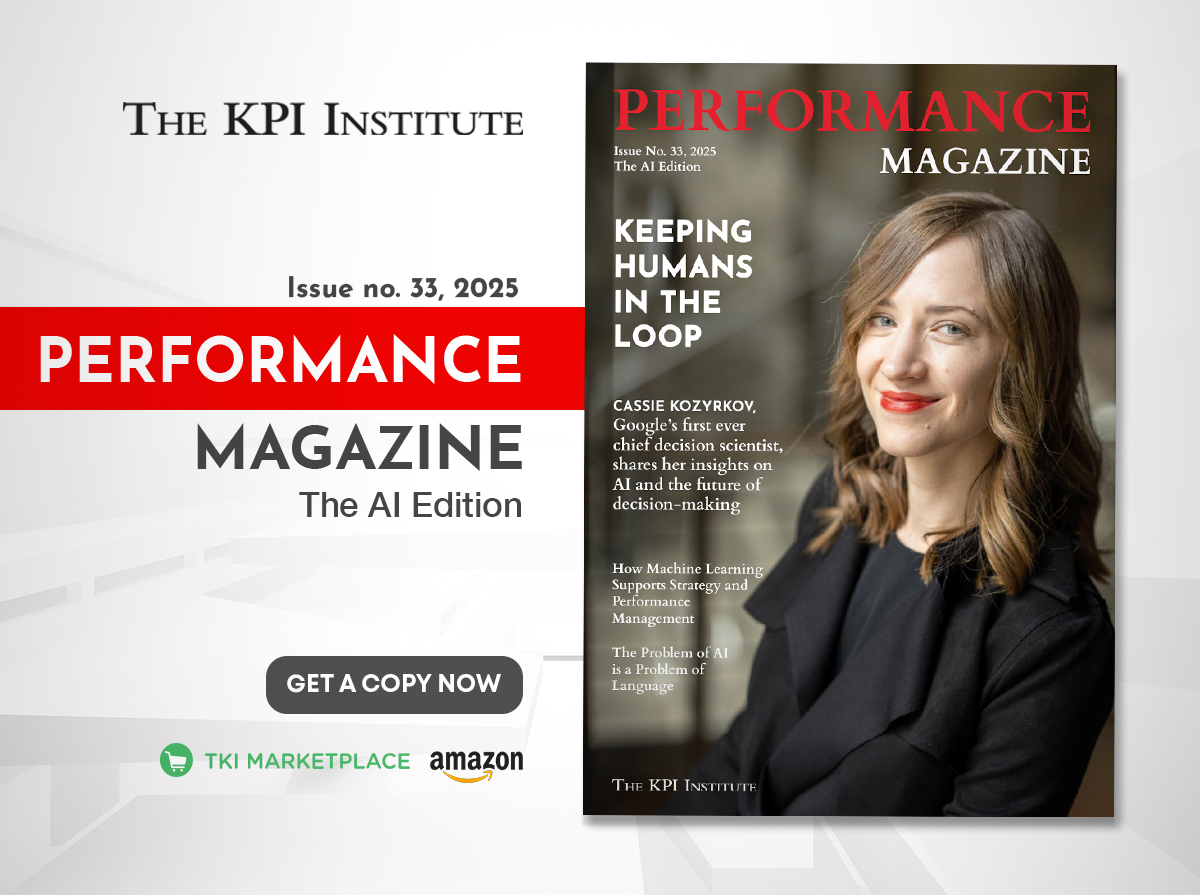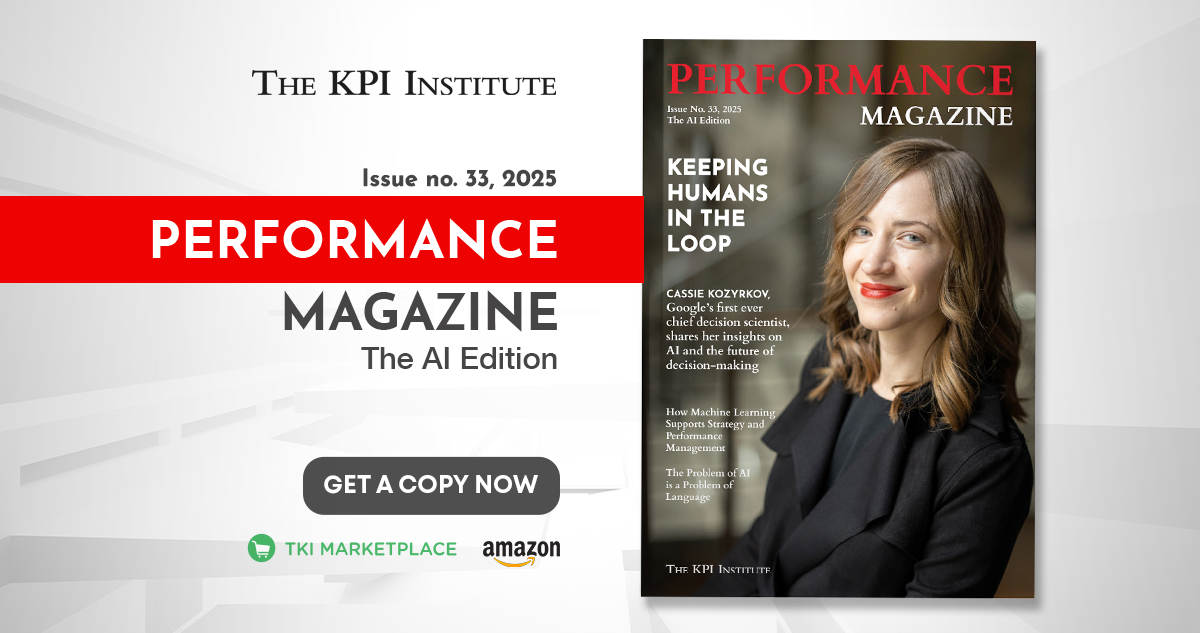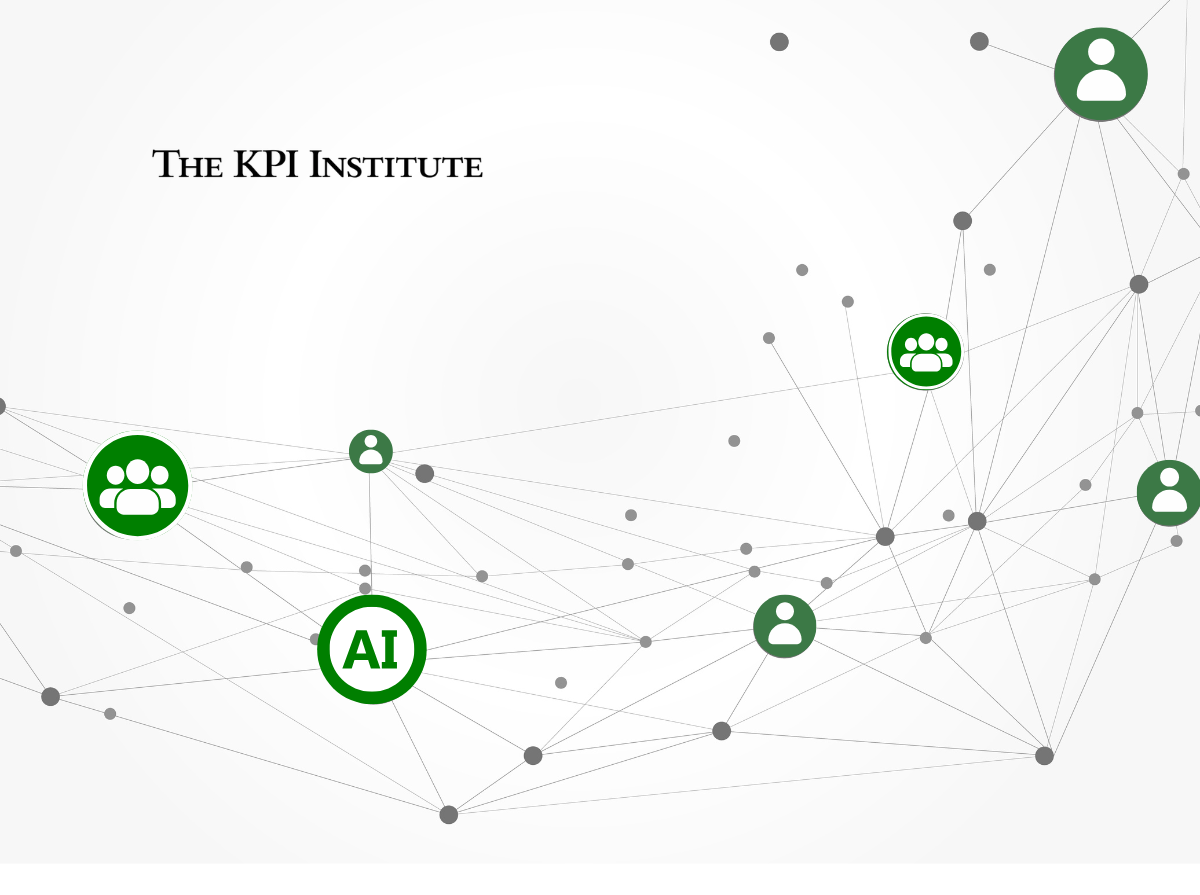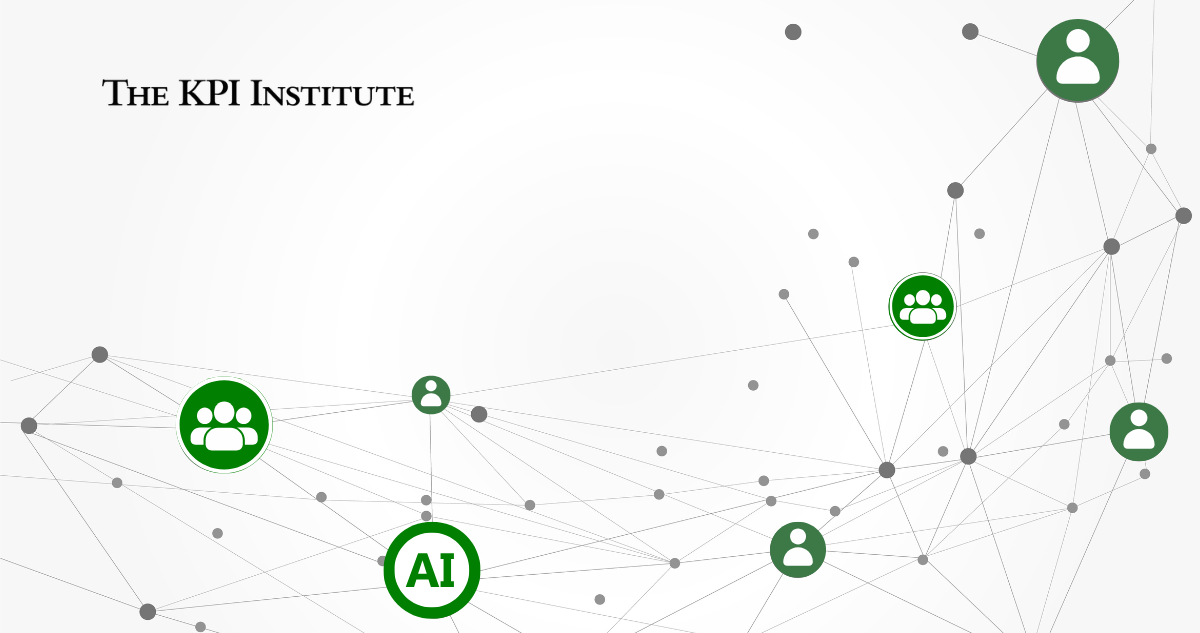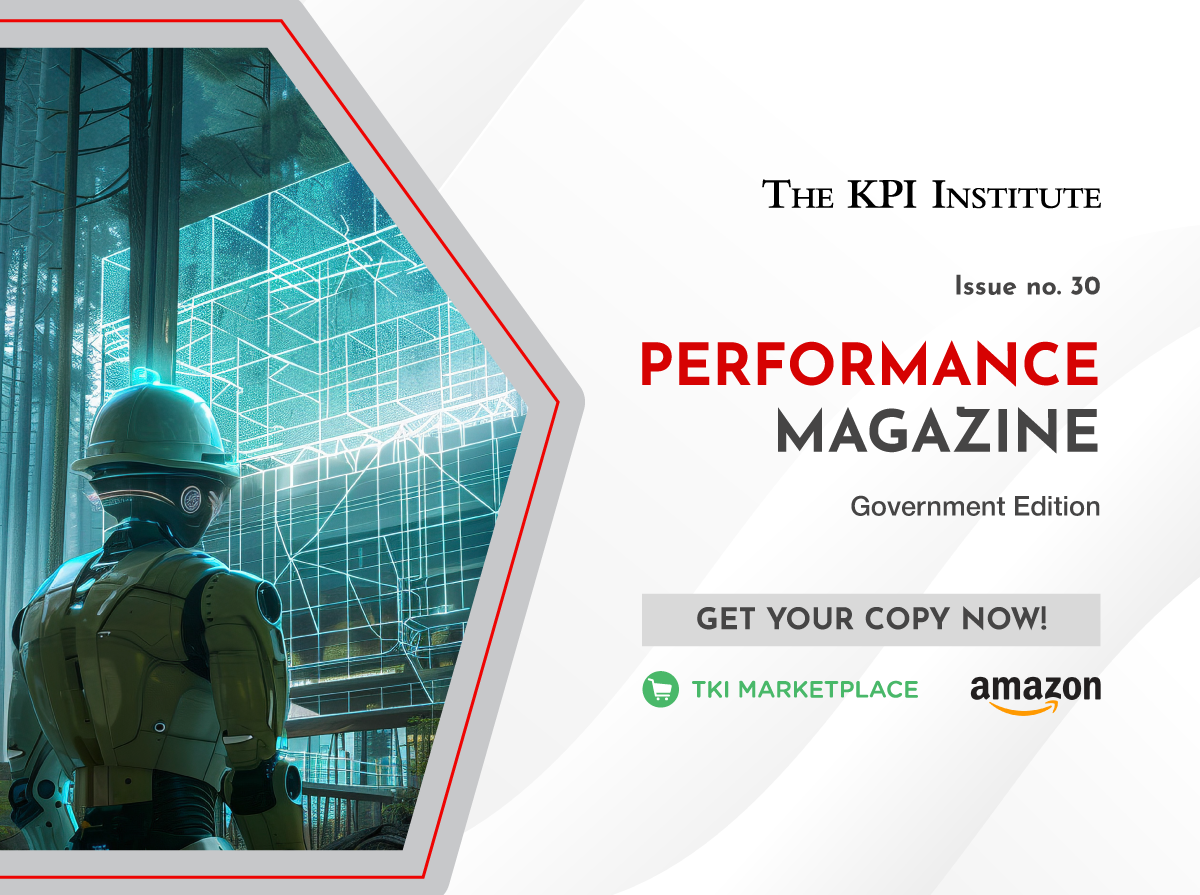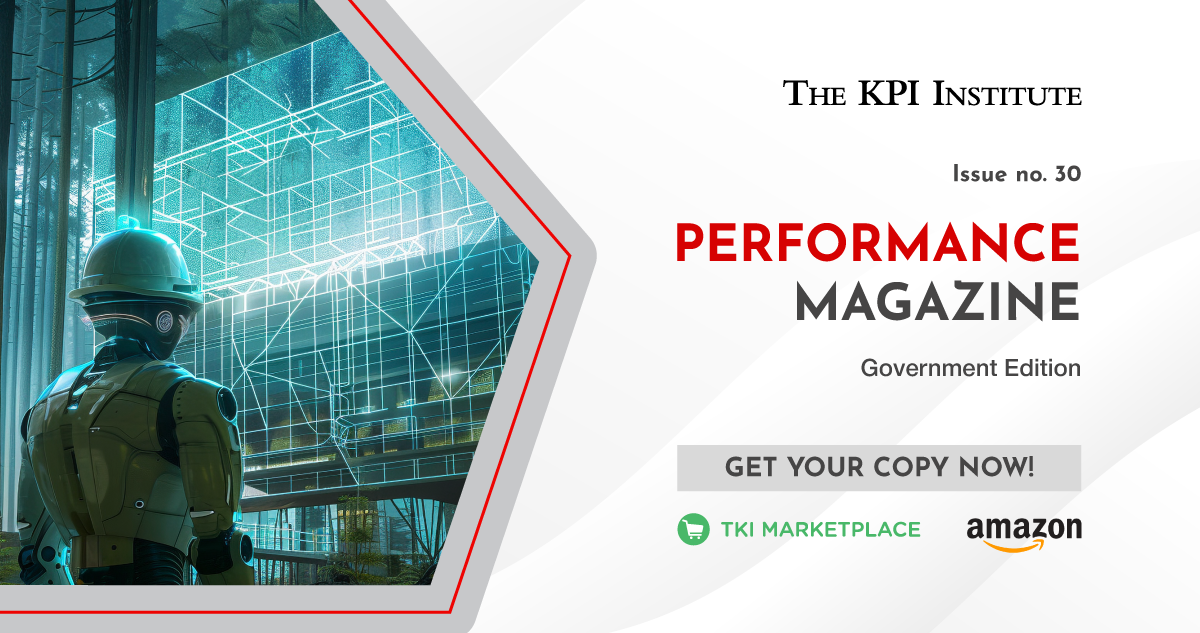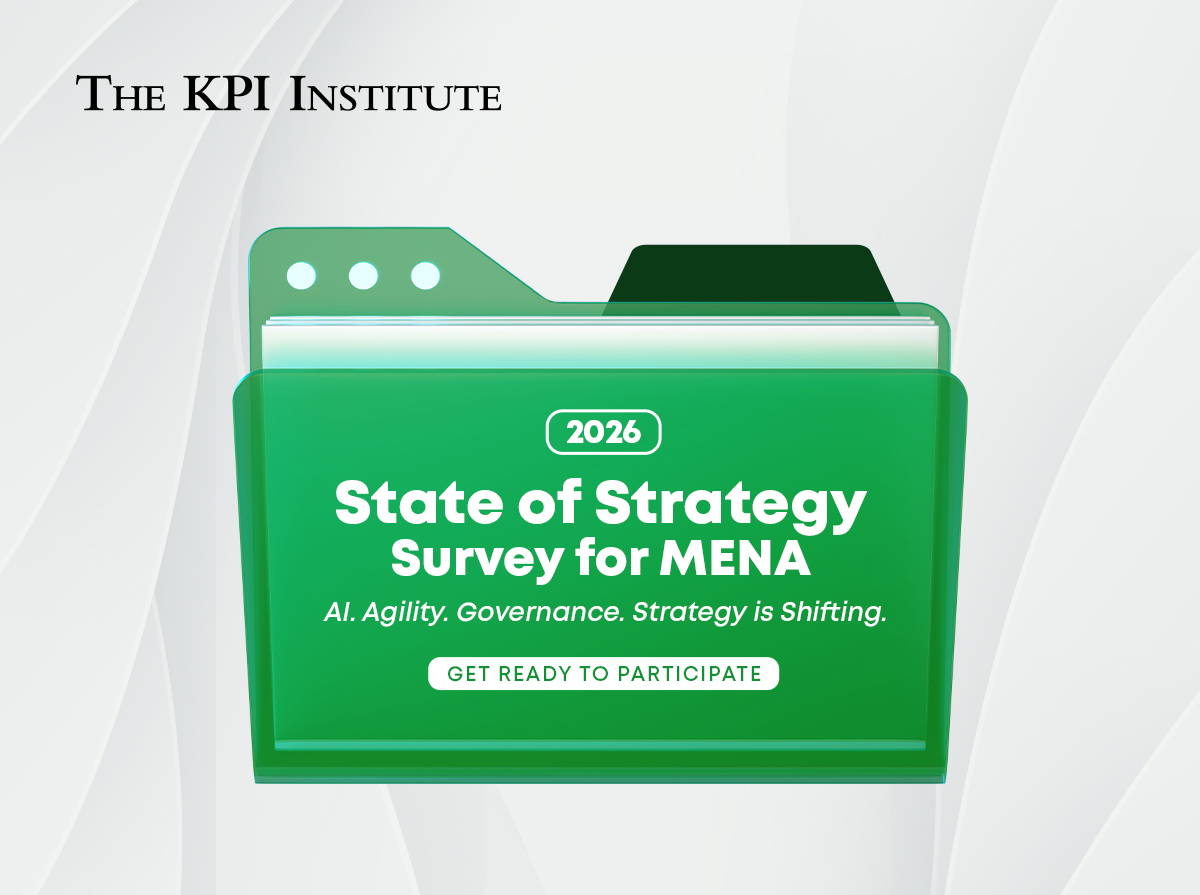
Is your strategy ready for 2026? Join the State of Strategy Survey and access exclusive FREE resources
February 11th, 2026 Posted by Kimberly Tilar Publications 0 thoughts on “Is your strategy ready for 2026? Join the State of Strategy Survey and access exclusive FREE resources”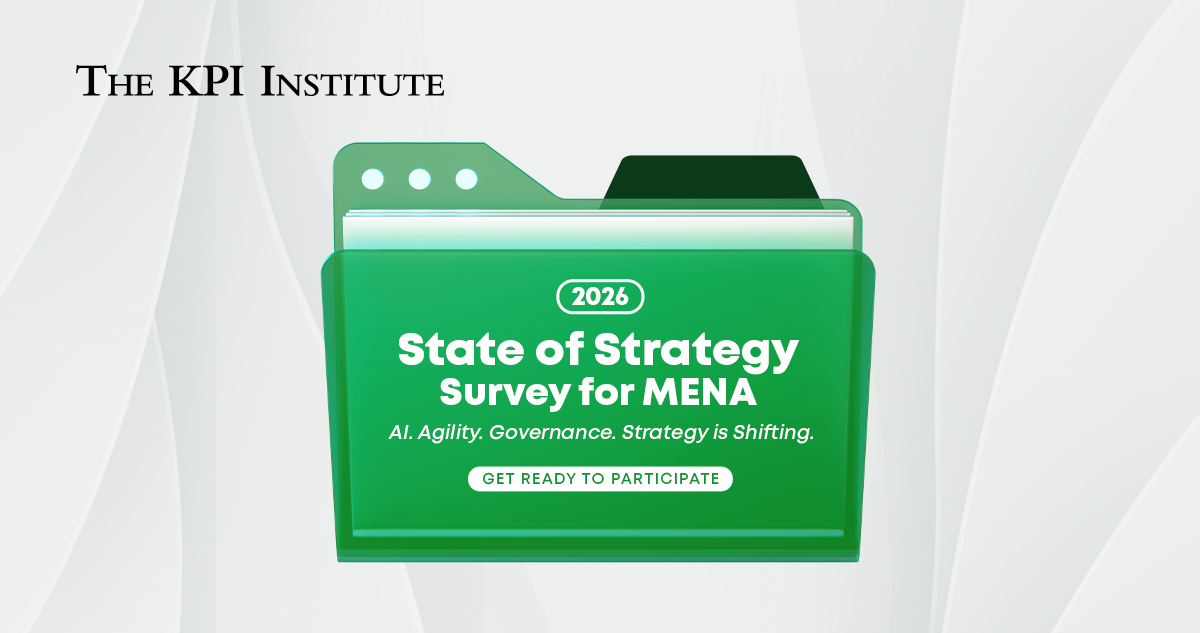
The 2026 State of Strategy Management Practice Survey is live! Gain exclusive resources to strengthen your strategy while sharing your insights on AI, agility, governance, and sustainability in Middle East and North Africa (MENA) organizations. Join the survey here!
Most organizations can create strategies, but they struggle to execute them. Plans are approved and targets set, yet day-to-day realities often derail results. As MENA organizations face rapid change, strategy leaders must do more than plan. They must adapt, execute, and deliver. To capture how organizations are responding, The KPI Institute launched the 2026 State of Strategy Management Practice Survey.
The survey invites strategy and performance professionals across the region to share their perspectives on the challenges most likely to shape strategy execution in 2026. These include artificial intelligence (AI) integration in decision-making, accelerating planning cycles, growing governance and compliance demands, and rising sustainability and environmental, social, and governance (ESG) expectations.
This forward-looking initiative builds on key insights from the State of Strategy Management Practice – 2025 MENA Region report. Last year’s findings revealed a region in transition, with strategic planning becoming more formal and structured, signaling greater maturity in long-term decision-making. At the same time, execution challenges persisted. Confidence in translating strategy into measurable outcomes declined for the second consecutive year, with nearly 80% of professionals reporting firsthand experience with execution failure.
The 2025 data also highlighted an evolution in performance management systems, with organizations increasingly prioritizing agility, alignment, and accountability—while still facing gaps in capability and execution, particularly between large organizations and small and medium-sized enterprises (SMEs). Together, these insights underscore a clear message: strong plans are not enough. Execution capability will define organizational success in 2026.
With this, The KPI Institute invites you to share your perspective on emerging challenges in 2026 and welcomes your 2026 strategy prediction. Join the survey now and receive access to exclusive resources, including the Top 25 Strategy and Performance KPIs – 2025 Edition and the State of Strategy Management Practice – 2025 MENA Region report.

